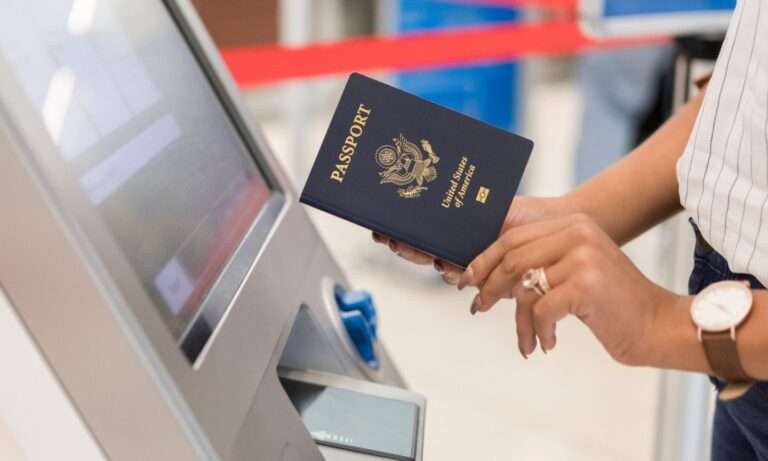Ireland is a country of green landscapes, history, and culture. Whether you’re drawn to the streets of Dublin, the scenic cliffs of Moher, or the ancient ruins scattered across the countryside, Ireland has something to offer every traveler. But if you have a felony on your record, you might be wondering if your past could stand in the way of visiting this beautiful country. The answer is more nuanced than you might think.
Understanding Ireland’s Entry Requirements
When it comes to international travel, each country sets its own rules about who can enter. Ireland is no different, but its policies toward travelers with a criminal record are less rigid than you might expect. Let’s dive into the specifics.
- Visa-Free Travel for U.S. Citizens: One of the biggest perks for U.S. citizens traveling to Ireland is that you don’t need a visa for short stays of up to 90 days. This means that, unlike some other countries, you won’t need to disclose your criminal record in a visa application before you travel. Instead, the decision to allow you entry is made when you arrive in Ireland.
- Immigration Officer’s Discretion: Upon arrival, you’ll go through an immigration checkpoint where an officer will ask you about the purpose of your visit, your planned length of stay, and other standard questions. The immigration officer has the authority to decide whether to grant you entry, and they can ask about your criminal history if they see fit.
- The Importance of Honesty: If you’re asked directly about your criminal record, honesty is your best policy. Trying to hide or downplay your past could lead to immediate denial of entry and deportation. It’s always better to be upfront, as the consequences of being caught in a lie can be severe.
Factors That Could Influence Your Entry
While having a felony on your record doesn’t automatically bar you from entering Ireland, several factors could influence the decision of the immigration officer at the border. Here’s what you need to consider:
- Type of Felony: Not all felonies are viewed the same. Non-violent or older offenses might be seen as less concerning than recent or violent crimes. If your felony is related to a serious offense, especially one that poses a security risk, the chances of denial are higher.
- Purpose of Visit: Whether you’re traveling for tourism, visiting family, or for work, being clear about your reasons for visiting Ireland can work in your favor. Having a well-documented itinerary can also show that your visit is genuine and that you have plans to return home.
- Behavior and Presentation at the Border: How you conduct yourself when interacting with the immigration officer is crucial. Being calm, respectful, and cooperative can make a positive impression and might tip the scales in your favor if the officer is on the fence about letting you in.
Preparing for Your Trip to Ireland
If you’re a felon planning to travel to Ireland, preparation is essential. The more prepared you are, the smoother your entry process is likely to be. Here’s how you can set yourself up for success:
- Gather Your Documentation: Make sure you have all the necessary documents with you. This includes your passport, details of your return flight, proof of accommodation, and a travel itinerary. If you need to get a new or replacement passport quickly, you might want to check out Rushmypassport for expedited services. These documents demonstrate that you have clear plans and intend to return home, which can reassure the immigration officer.
- Consider a Letter of Support: If you’re visiting friends or family in Ireland, it can be helpful to carry a letter of invitation or support from them. This letter should outline who you are, your relationship with the person writing the letter, and the purpose of your visit.
- Conduct a Background Check: Although not required, obtaining a background check from the police in your home country can be useful. It shows that you’re being proactive about your situation and can provide clarity if there are any questions about your past.
Tips for Felons Traveling to Ireland
Traveling with a criminal record can be stressful, but with careful planning, you can make your trip to Ireland as smooth as possible. Here are some additional tips to keep in mind:
- Travel During Off-Peak Times: If possible, plan your arrival during less busy times at the airport. Immigration officers might have more time to review your case carefully if they’re not rushed by large crowds.
- Be Ready to Answer Questions: Practice answering questions about your travel plans and your past. Being prepared can help you stay calm and collected at the border.
- Stay Updated on Travel Restrictions: Regulations can change, especially in response to global events. Make sure to check the latest travel advisories for Ireland before your departure.
What to Do If You’re Denied Entry to Ireland
Despite your best preparations, there’s always a possibility that you could be denied entry into Ireland. If this happens, you’ll likely be placed on the next available flight back to your home country. While this can be incredibly frustrating, it’s important to remain calm and respectful throughout the process. Losing your temper won’t help the situation and could make it more difficult if you decide to reapply in the future.
If you’re denied entry, consider consulting with an immigration lawyer when you return home. They can help you understand your options, whether it’s appealing the decision or exploring other ways to travel to Ireland in the future.
Moving to Ireland with a Felony Record
For those who are thinking about making a more permanent move to Ireland, the process becomes more complex. You’ll need to apply for a visa or residency permit, and this process will involve a thorough background check. Your criminal record will be taken into account, and depending on the nature of your felony, you may face significant challenges. However, it’s worth noting that each application is evaluated on a case-by-case basis, so having a felony doesn’t automatically disqualify you.
For digital nomads or remote workers considering a move, Ireland has its own set of regulations and opportunities. You might want to check out our detailed guide on working as a digital nomad in Ireland, which covers everything from visa options to the best places to live and work.
Pros and Cons of Traveling to Ireland as a Felon
Like any situation, traveling to Ireland with a felony record has its pros and cons. Understanding both can help you make an informed decision.
Pros:
- No Visa Requirement: As a U.S. citizen, you don’t need a visa for short stays, which simplifies the process.
- Discretion at the Border: There’s a chance you might not be asked about your criminal record at all, depending on the officer.
- Beautiful Destination: Ireland is a stunning country with a lot to offer, from historical sites to natural beauty.
Cons:
- Uncertainty at the Border: The decision to allow you entry is up to the immigration officer, which can lead to uncertainty.
- Risk of Denial: If your record is concerning, there’s a chance you could be denied entry and sent home.
- Possible Restrictions for Longer Stays: Moving to Ireland or staying long-term with a felony record may be more challenging due to stricter background checks.
FAQ on Felons Traveling to Ireland
Q: Can I travel to Ireland with a felony on my record?
A: Yes, you can travel to Ireland with a felony on your record. However, entry is not guaranteed and is at the discretion of the immigration officer.
Q: Will I be asked about my criminal record when I arrive in Ireland?
A: You might be asked about your criminal record, but it’s not guaranteed. If asked, it’s important to be honest and upfront about your past.
Q: Do I need a visa to travel to Ireland as a felon?
A: U.S. citizens do not need a visa for short stays of up to 90 days, regardless of criminal record. However, for longer stays or residency, you’ll need to apply for a visa, which will involve a background check.
Q: What should I do if I’m denied entry to Ireland?
A: If you’re denied entry, you’ll likely be sent back to your home country. It’s important to remain calm and respectful throughout the process. Consulting with an immigration lawyer afterward can help you understand your options.
Q: Can I move to Ireland with a felony on my record?
A: Moving to Ireland with a felony record is more complicated than visiting for a short stay. You’ll need to apply for a visa or residency permit, and your criminal record will be taken into account. Each application is evaluated individually, so it’s possible but not guaranteed.
Q: Where can I get help with my passport if I need it quickly?
A: If you need to get your passport quickly, Rushmypassport can help you get it expedited so you can travel without delay.
Final Thoughts on Felons Traveling to Ireland
Traveling to Ireland with a felony on your record is certainly possible, but it requires careful preparation and an understanding of the potential hurdles you might face. By being honest, gathering the right documentation, and presenting yourself well at the border, you can increase your chances of being allowed entry and enjoying everything Ireland has to offer.
And if you need to get your passport sorted out quickly before your trip, Rushmypassport can help you get your passport in less than 3 days. No matter what draws you to Ireland, don’t let your past prevent you from experiencing all that this incredible country has to offer.






